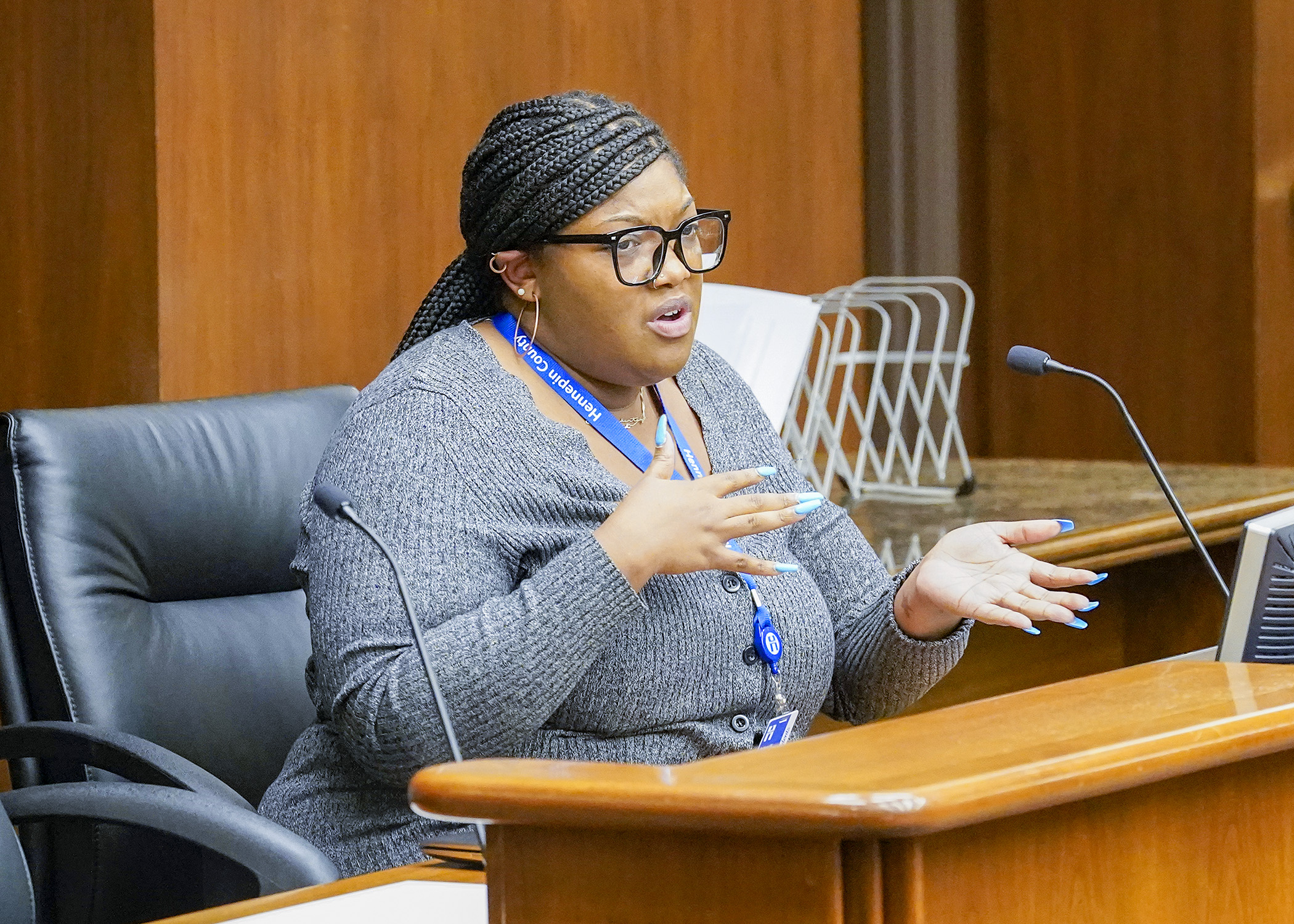Evictions on the rise in MN— a crisis ‘bigger than before’ the pandemic, committee hears

Over 22,000 evictions were filed in Minnesota last year.
In other words, one in 30 renter households across the state faced an eviction.
Rachael Sterling, a housing attorney at HOME Line, told the House Housing Finance and Policy Committee Tuesday that the eviction crisis didn’t start when the eviction moratorium phaseout expired in 2022. She said that it was going on prior to the pandemic, but it is still here and bigger than before.
Ron Elwood, a supervising attorney at Mid-Minnesota Legal Assistance, shared the driving factors behind housing struggles that his organization has noticed.
These include housing unaffordability, the length of time it takes to make new units accessible, the gap between the need and availability of rental assistance, the court process and the current challenge of finding housing with an eviction filing on record.
“On the one side of the ledger, landlord’s and the public’s legitimate right to know who they’re renting to is absolutely important,” Elwood said. “But on the other hand, an eviction filing is merely an allegation, an unproven allegation, but it becomes a scarlet letter regardless of the outcomes or merits of the case. It follows a person for at least seven years.”
Working with tenants, landlords and attorneys, Brittani Walker helps facilitate the process of rental assistance during court proceedings.
As a case management assistant with Hennepin County, Walker said: “The underlying issue that I see is that these tenants don’t know their rights, they are not allowed enough time to round up funds that they need, and the lack of compassion and understanding of their situation which most times is out of their control.”
Both a tenant in St. Paul and a tenant organizer with HOME Line, Katherine Banbury spoke on behalf of tenants who could not attend the informational hearing, whether because they could not take time off work or they fear retaliation from landlords should they choose to testify.
She shared stories of late payments due to work injuries or lost jobs, as well as the tenants’ challenges finding rental assistance after an eviction or consequential homelessness.
“Families with small children, vulnerable adults, and minorities are particularly at risk for losing their homes without rental assistance,” said Jacfar Khalif, an organizer at New American Development Center.
Related Articles
Search Session Daily
Advanced Search OptionsPriority Dailies
Speaker Emerita Melissa Hortman, husband killed in attack
By HPIS Staff House Speaker Emerita Melissa Hortman (DFL-Brooklyn Park) and her husband, Mark, were fatally shot in their home early Saturday morning.
Gov. Tim Walz announced the news dur...
House Speaker Emerita Melissa Hortman (DFL-Brooklyn Park) and her husband, Mark, were fatally shot in their home early Saturday morning.
Gov. Tim Walz announced the news dur...
Lawmakers deliver budget bills to governor's desk in one-day special session
By Mike Cook About that talk of needing all 21 hours left in a legislative day to complete a special session?
House members were more than up to the challenge Monday. Beginning at 10 a.m...
About that talk of needing all 21 hours left in a legislative day to complete a special session?
House members were more than up to the challenge Monday. Beginning at 10 a.m...